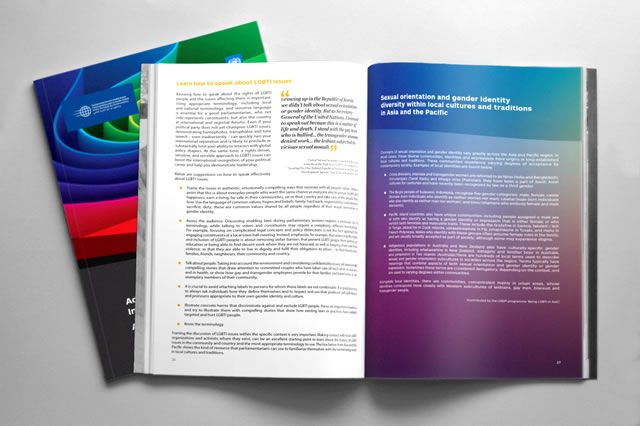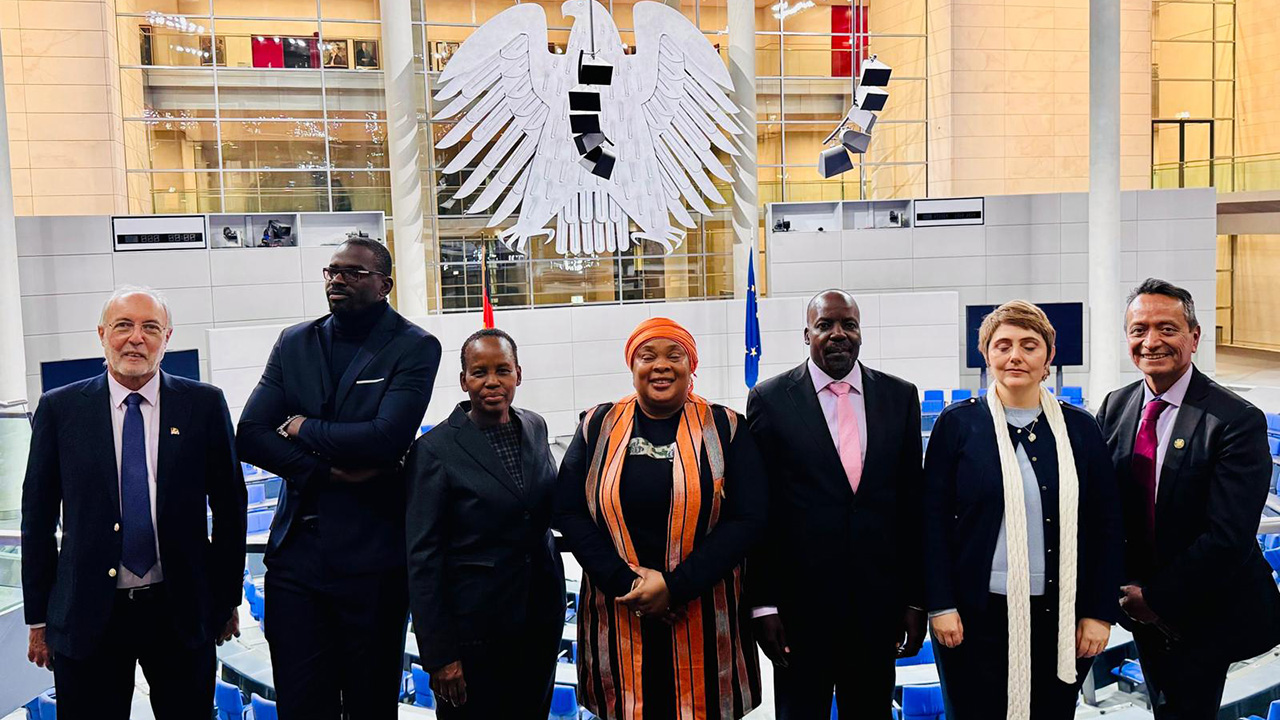PGA co-organized the Global Equality Summit with Human Dignity Trust, the Other Foundation and the Global Equality Caucus on 11 to 13 November 2024 in Cape Town (South Africa) that brought together over 200 participants, including 40 legislators from all regions, LGBTQI+ civil society representatives, government representatives and members of the diplomatic community. The Summit provided an opportunity for legislators worldwide to share experiences.
During the first day of the Summit, an ILGA World Pre-Conference, PGA hosted a plenary panel on “Sustainable paths to LGBTQI+ Inclusion”. The panel discussion explored the increase in incidents of illiberal actors weaponizing LGBTQI+ rights and fomenting the spread of hate and discriminatory speech. Bishop Joseph Tolton, President of Interconnected Justice, gave an important ideological overview of Christian dominionism as an underlying framework of the anti-rights movement. Economic exploitation and religious fervor continue to be a root cause of discrimination and stigmatization of LGBTQI+ persons. The anti-rights movement is amplifying moral panic and restricting economic growth.
Ms. Salen Kambinda, Director of Positive Vibes Trust in Namibia, emphasized that LGBTQI+ persons are not advocating for special rights, but the respect of their human rights. The role of legislators is fundamental. They have to take into account international and regional standards when drafting domestic legislation, such as the Southern African Development Community framework, engage with constituents on inclusion of vulnerable populations, and support data and evidence collection efforts to map anti-rights actors. Although many legislators and activists work in hostile contexts, especially in Sub-Saharan Africa, there is power in solidarity, hence the importance of interfaith dialogue and engagement between legislators and the affected communities. Among the key points, Ms. Kambinda argued that the haters have the microphone and speak the most, which gives a sense of a prevalence of their hateful rhetoric. In Namibia, more than half of the population support LGBTQI+ persons. Legislators should consider adopting evidence-based legislation and public policy. Follow the data! Additional avenues include strategic litigation, which is key in repealing colonial discriminatory laws. All relevant stakeholders must come together to change hearts and minds.
Mr. Dane Lewis, Regional Program Manager of the Caribbean Forum for the Liberation and Acceptance of Genders and Sexualities (CariFLAGS) shared some best practices when engaging on LGBTQI+ inclusion with parliaments in the Caribbean:
- Building trust, which entails building a relationship with civil society representatives
- Ensuring regular engagement and consistent communication.
- Establishing connections through formal networks for regular engagement.
- Introducing and adopting data driven legislation, notwithstanding a lack of data in the region.
- Engaging in a non-partisan way to bring in the most people across political parties.
- Supporting the champions who are in the political space because they are also front line human rights defenders.
During the next two policy-focused days for legislators, PGA hosted a panel on “Challenges facing the global LGBTIQ+ rights movement:
Seun Bakare, Human Dignity Trust, reminded the audience that challenges to LGBTQI+ inclusion is clear, but surmountable. More than 60 countries criminalize consensual same sex relations, but in countries like Nigeria, it is punishable by death. Laws and policies have fostered a climate of fear and erased people’s identity. Legislation is important, but it is also important to reaffirm dignity, foster humanity and plant seeds of empathy, especially in contexts where basic protections in health, education and other public services are lacking.
When asked what challenges exist in her country and how to build parliamentary support for progressive change, Dep. Duda Salabert, Member of the Chamber of Deputies in Brazil noted that her role as an educator is more important than her role as a legislator, because what changes the world are not the laws. What changes the world are changes of conscience, which happen in schools. Among the major challenges identified by Dep. Salabert, gender-based political violence ranks high. She recounted her personal experience to illustrate how severe the violence can be. She received three death threats from Nazi groups that have threated to transform the school where she worked into a bloodbath. Since then, she was dismissed and unable to work at another school. In a short period, she received 20 death treats targeting her, her 5-year-old daughter, and staff at her office. Another major challenge in Brazil is the regulation of hate speech on social media. President Lula attempted to pass a law regulating hate speech on social media platforms, which was decried by the far right as promotion of censorship. Dep. Salabert explained that the racial, feminist and LGBTQI+ debates are really a debate on the economy, because vulnerable groups are not included in the formal labor market. In Brazil, the transgender community is particularly affected. Death rates are high and the life expectancy of transgender persons is 40 years old.
Another country with some positive developments for LGBTQI+ persons is Namibia. Flavian Rhode, Executive Director of Positive Vibes Trust shared his reflections on the Namibian experience in promoting LGBTQI+ rights. He emphasized that having key leaders to advance the work is fundamental. Members of Parliament with other relevant stakeholders should work in a complementary way in the establishment of a robust regulatory framework, increasing civil and political participation, and making decisions based on data. Actors should also support governance and accountability, understanding socio-religious and cultural norms as well as ensuring access to public services. While there have been successes in the courts, the LGBTQI+ community experienced backlash and witnessed a push to pass more stringent laws. For example, the Namibian Government is using tools like financial reporting to hamper the work of NGOs working on inclusion.
Temistocles Villanueva, member of the Congress of Mexico, said that in the Global South, sexual and gender identities are also political identities, hence the importance of networks like PGA to support increasing the political participation of LGBTQI+ persons. In the past 20 years, there has been a profound transformation on LGBTQI+ inclusion and it is important to connect experiences at the global, regional and national levels.
PGA organized a special session engaging with Sub-Saharan African legislators and key civil society activist on the drafting of a context sensitive toolkit, based on the Inclusion Handbook for Parliamentarians.





